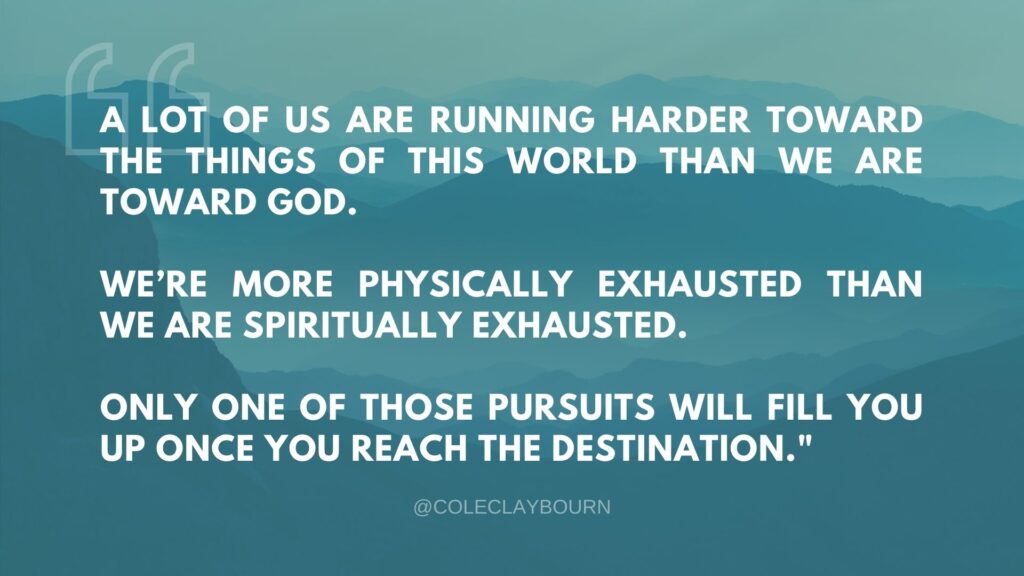Breaking Free From the Chains of Comparison
Have you ever heard of an app called FaceTune? You probably have — it’s the No. 3 most popular paid app on the Apple App store and the No. 1 app in the photo and video category.
If you haven’t, it’s one of those knockoff Photoshop image-editing apps that lets you retouch your photos — mostly selfies — right on your phone.
This app costs $3.99 on the App store, and at the time of writing this, there were 141,540 reviews. Assuming that all of those that left a review purchased the app, that amounts to roughly $568,000 that people have spent collectively on services to make themselves appear better online than they are in reality.
It’s likely a lot more than that number, too, because not everyone takes the time to rate and review an app. And that’s just one of many apps that offer similar services.
I also found this interesting — if you do just a cursory search of things that people struggle with, here are what some of the top search results list:
-Straight up comparison
-Not feeling worthy enough
-Not having enough money
-Finding happiness & contentment
Lately I’ve been getting into learning the psychology of things, particularly specific human behaviors. Our propensity as humans to compare ourselves to others is a fascinating one, and it’s something that has been inherent to humans for all of history.
Social and health psychologist Juliana Breines asks this in an article for Psychology Today: “Is there a way to compare ourselves to others without falling into these traps? Research suggests that the answer is yes; it’s just a matter of perspective.”
Truthfully, it requires us to go one step deeper: being wholly content in who God created us to be and what He created us to do.
In this article, she explains the concepts of upward comparison and downward comparison. To put it simply, upward comparison is where you compare yourself to people you perceive as better off than you, whereas downward comparison is where you compare yourself to those you perceive as worse off.
There are pros and cons to each of these, and I’ll link the article in the show notes so you can read it in full, but there’s one part in particular in this article that really jumped out at me:
“In one analysis, researchers proposed that when we identify with those who are less fortunate and recognize our own vulnerability, downward comparison can increase feelings of compassion and concern for others.”
This approach better fosters the mentality of serving the least of these, loving our neighbors, and placing others ahead of ourselves, as God has called us to do. It’s one of the best practices to cultivate a heart of contentment.
Ultimately what comparison does is it ties us down. It robs us of our joy. It damages our self-esteem. It makes us prisoners to envy and greed.
For too long I have felt captive to the chains that comparison puts on my soul. For too long I have believed the lie that comparison tells me — that what I have is not enough, that who God created me to be is not good enough, or that the path God set apart for me and only me is not as good as what someone else has.
When we believe the lies comparison tells us to do, it makes it hard for us to be happy for those we love because we are too busy being jealous of what they have. We take on a mindset of scarcity over one of abundance.
Our God is a God of abundance, not scarcity.
That article on Psychology Today led me to another one on their website written by two Georgetown University doctors on the effects that social media — and apps like FaceTune — have had on the cosmetic industry.
“In 2017, for example, a survey of Facial Plastic surgeons found that 55 percent of surgeons reported seeing patients who requested to improve their appearance in selfies,” the article says.
It’s a phenomenon called Snapchat Dysmorphia. People are literally showing filtered selfies to surgeons as examples of what they want to look like.
It’s sort of like when in my senior year of high school I took a photo of Jesse McCartney to my hair stylist and told her I wanted my hair to look like his beautiful highlighted locks. (To her credit, she nailed it, but that’s beside the point).
But imagine the pressure these surgeons must feel. They’re being asked to perform almost impossible procedures because people feel compelled to measure up to impossible standards. But they’re willing to spend all kinds of money to do it.
Why are we so caught up chasing after things of this world when we’ve been told that our treasures are not here but are instead stored in Heaven? I know not everyone shares the same faith as me, and if that’s you, I want to talk specifically to you right now.
You don’t have to be bound by the chains of comparison. You don’t have to walk around with the extra weight of those shackles on your feet. You don’t have to exhaust yourself chasing after the impossible standards the world tells us to chase after. God has already designed a beautiful life for you, a story that only you can write, a lane only you can walk in.
He’s given you unique talents and abilities that only you have.
Christians, stop chasing.
A lot of us are running harder toward the things of this world than we are toward God. We’re more physically exhausted than we are spiritually exhausted. Only one of those pursuits will fill you up once you reach the destination.

All we have to do is look at the Israelites. They were lost in the wilderness and God was leading them to the Promised Land. This was a physically exhausting journey that truly was going to lead them to spiritual and physical restoration, but they couldn’t get out of their own way. They kept chasing after other idols ahead of God and what God had planned for them.
They wanted things of this world more than they wanted to wait for the things of Heaven.
God gives us a pretty stern warning about all of this in the book of James, particularly James 4:5:
“You adulterous people, don’t you know that friendship with the world means enmity against God? Therefore, anyone who chooses to be a friend of the world becomes an enemy of God.”
We are not called to chase after the things of this world. We are called the chase after the heart of God.
My buddy Tyler Lindsey, who was on this show with his wife Dena back in February for our marriage series, spoke about this at our young adult ministry back in the Fall. He compared this to driving a car. Essentially God has given us a car unique to us, a lane that’s designed specifically for us to drive in, and a specific journey for us to travel.
When we start glancing over at the car in the next lane and trying to drive in someone else’s lane, we’ll crash. But if we stay in our lane, focus on operating our car, and navigating our own journey, we’ll arrive where God has designed us to go.
It’s hard for us, though. All of us want to feel known. To feel needed. To feel valued. We want people to know when we’ve done something we’re proud of, and we want them to acknowledge it. We want to feel like we have a seat at the table of “success.” When someone else gets there before us or has a bigger plate at the table, we feel envious.
The book of James has some pretty strong imagery about what happens when we feast on the wrong things, though. Check out James 4:3-5:
“Your gold and silver are corroded. Their corrosion will testify against you and eat your flesh like fire. You have hoarded wealth in the last days. Look! The wages you failed to pay the workers who mowed your fields are crying out against you. The cries of the harvesters have reached the ears of the Lord Almighty. You have lived on earth in luxury and self-indulgence. You have fattened yourselves in the day of slaughter.”
Much of the book serves as a warning against propping ourselves up over other people. Instead, we are called to put others above ourselves.
The single greatest commandment we’ve been given is to love the Lord with all our heart, all our soul, and all our strength. The second is to love others as we love ourselves.
I think too often we conveniently read over that first part and just see “love ourselves.”
But we at least try not to toot our own horn so much! Well, sort of.
We’ve found ways to creatively brag about ourselves that maybe on the surface aren’t as obvious, but really it’s pretty thinly-veiled humility, hence the popular term “humble brag.”
We know that bragging is not a good look, but the desire to let people know our accomplishments is often too strong for us to just keep them to ourselves.
The book of James is pretty clear about this, too.
Verse 6 says: “God opposes the proud but shows favor to the humble.”
Pretty simple.
The best way to fight comparison will always be through contentment, and one of the best ways to cultivate contentment is by actively putting God and others first.
Author Drew Dyck explores this in his book on self-control, Your Future Self Will Thank You.
“There’s a cruel irony whenever we value something above God,” he writes. “If we prioritize happiness above all else, we will never find happiness…lavishing our highest allegiance on something other than God leaves us empty, dissatisfied. We have a God-shaped vacuum in our hearts. Only when we grant God our highest love do we find the contentment we crave.”
Many of life’s biggest problems, I’ve found, have very simple solutions. We know these solutions because many of them we learned as kids, we just decide to complicate them as we get older. But this one is simple: the world doesn’t revolve around you.
James 4:14 says, “Why, you do not even know what will happen tomorrow. What is your life? You are a mist that appears for a little while and then vanishes.”
That might seem paradoxical after I just spent a long time telling you that God has great things planned for you. But both of these can be true. God has great things for us in the small time we have on this earth. In the meantime, we are called to love people and use our gifts to bless others.
Why spend any of that precious time chasing after what others have instead of enjoying what God has already given you?
When we begin to rewire our brain and our hearts to be in line with this, it actually becomes the most freeing thing in the world. We no longer have to worry. We don’t have to run. We no longer have to be caught up in the rat race of comparison. We don’t have to exhaust ourselves.
Instead, we can rest in the fact that God created us out of love to be great in the way He designed us to be great and use that greatness to bless others.
If you liked this article, check out some other related content:
–What I learned about identity in my year away from teaching
–Episode 47: Writing, Comparison, & Building Better Habits with Author Hannah Brencher

